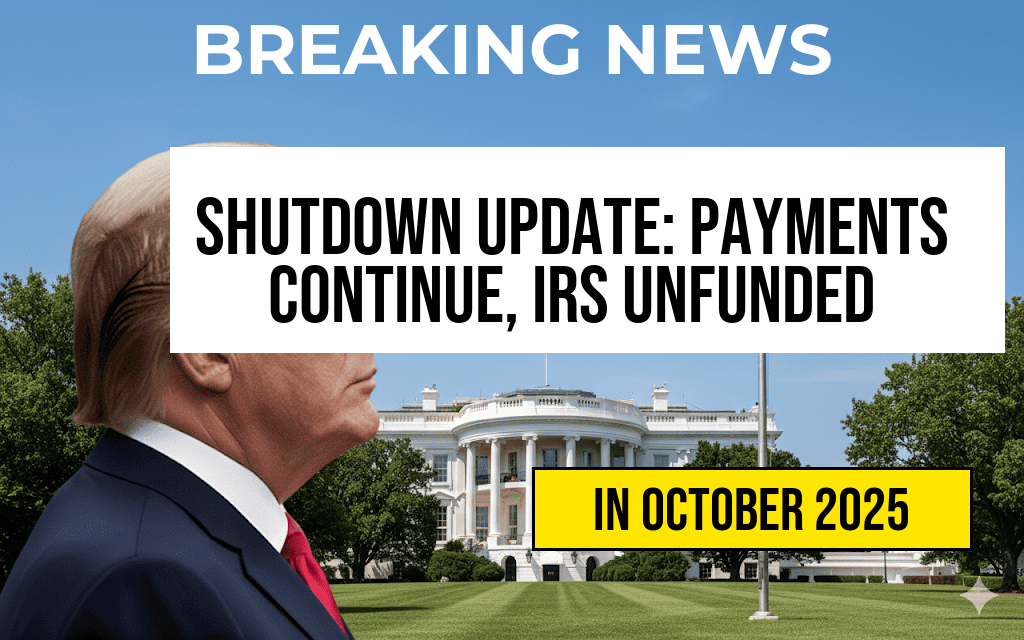Shutdown Update: Social Security Payments Continue While IRS Help Desks Remain Unfunded
Amid ongoing government funding disputes, millions of Americans relying on Social Security benefits are assured that their payments will continue without interruption despite the federal shutdown. However, the Internal Revenue Service (IRS) is facing significant operational challenges as its help desks remain unfunded and understaffed, leaving taxpayers without crucial support during tax season. The stark contrast underscores the uneven impact of the shutdown, with vital social programs maintaining service levels even as essential taxpayer assistance remains unavailable.
Social Security Payments Secure Amid Shutdown
Despite the federal government’s partial closure, the Social Security Administration (SSA) has confirmed that scheduled benefit payments will proceed as planned. This continuity is rooted in statutory obligations that safeguard these payments regardless of funding disruptions. The SSA has emphasized that beneficiaries will receive their payments on time, whether through direct deposit or check, even as other government functions face delays.
“Our priority remains ensuring that recipients of Social Security, Supplemental Security Income (SSI), and other related benefits continue to receive their payments without disruption,” said a spokesperson from the SSA. The agency has also assured beneficiaries that customer service lines and local offices are operating normally for general inquiries, although staffing levels may be limited in some locations.
IRS Help Desks Remain Unfunded and Overwhelmed
In stark contrast, the IRS has struggled to maintain its usual level of service amid the shutdown. With a significant portion of its workforce furloughed or working without pay, taxpayer assistance hotlines and in-person support centers are largely unavailable. This situation complicates the tax filing process for millions, especially those needing guidance on complex issues such as stimulus payments, recovery rebate credits, or resolving notices from the agency.
| Service | Status |
|---|---|
| Help Desk Support (Phone lines) | Unfunded, limited or no support |
| Taxpayer Assistance Centers (TACs) | Mostly closed or operating with minimal staff |
| Online Tools and Resources | Accessible, but limited personalized support |
The IRS has issued notices warning taxpayers that delays in processing returns, refunds, and correspondence are likely to increase until funding is restored. This has raised concerns among tax professionals and advocacy groups, who warn that vulnerable populations—such as low-income filers and those needing urgent assistance—may bear the brunt of these operational cuts.
Political and Fiscal Context
The shutdown stems from a deadlock over federal spending bills, with disagreements over funding levels and policy issues. While essential services like Social Security are protected by law, agencies like the IRS rely heavily on annual appropriations to operate fully. Lawmakers have yet to reach a consensus on a funding agreement, leading to partial government closures and reduced services across many departments.
According to the Congressional Budget Office (CBO), the economic impact of government shutdowns extends beyond immediate agency operations, affecting consumer confidence and delaying economic activity. The IRS estimates that a prolonged shutdown could cost taxpayers billions in delayed refunds and increased administrative burdens.
Implications for American Taxpayers
- Benefit recipients: Can expect uninterrupted Social Security and SSI payments, providing financial stability for millions.
- Taxpayers: Face challenges in obtaining support, filing returns, and resolving issues with the IRS.
- Small businesses and self-employed: May experience delays in processing tax documents and receiving refunds, impacting cash flow.
- Vulnerable populations: Risk increased hardship due to reduced access to assistance and delayed services.
Looking Ahead
Lawmakers continue negotiations, with some proposing temporary funding measures to reopen agencies and restore full services. The Biden administration has urged Congress to prioritize essential government functions, emphasizing that the disruption harms citizens and hampers economic stability. Meanwhile, taxpayers are advised to remain vigilant, keep documentation organized, and utilize online resources where available.
As the situation evolves, updates from official sources—such as the Social Security Administration and the IRS—will be critical for staying informed about service levels and support options during this period of fiscal uncertainty.
Frequently Asked Questions
Question
Will Social Security payments continue during the government shutdown?
Question
Why do IRS help desks remain unfunded despite the shutdown?
Question
How might the government shutdown affect other services related to tax filing and tax assistance?
Question
What should beneficiaries do if they need assistance with Social Security during the shutdown?
Question
Are there any risks to Social Security payments or services due to the ongoing shutdown?

Leave a Reply